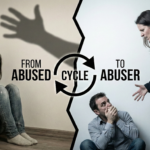Why do we keep playing a past traumatic event over and over in our minds? With children this
repetitive cycle reveals itself through art, games, and behaviors. With adults, it’s often
intertwined with symptoms such as “Flashbacks”, anxiety, depression, or concealed in their daily
obsessive/compulsive rituals. In my Resolution Focused Therapy© (RFT) I call it “Spinning” (re-
playing the event over and over). What are we trying to do? These questions haunted me early
in my career. So, what is going on?
My first fifteen years as therapist I worked in a locked facility for children who were too violent or
sexual to stay in the community. I often witnessed children replaying their past traumas through
games, drawings, rituals, and other mediums. I felt there had to be a specific reason for this sort
of repetitive play. Sure enough, while attending a lecture I heard a renowned trauma child
psychiatrist say the children are trying to change the ending of the events. It was an “Ah Ha”
moment for me. I immediately took that information and proceeded to incorporate it into my
therapy. I have utilized this information ever since! It was the missing piece for me to complete
my approach to treating trauma.
Just the idea that children aged 5 to 12 needed to be locked in a facility due to violence and(or)
sexualized behaviors was very sad. This acting out was a clear reaction to the severe abuse
they had endured. I did understand that both community safety and their own safety needed to
come first. During my time with them, I was able to observe and get involved in all aspects of
their lives. Without this ability to immerse myself in their worlds I would not have been able to
achieve the gains I made using the replay theory. Unfortunately, that was in the early 1990’s,
and years later the system would no longer fund the treatment for more than several months. A
sad commentary for sure and another blog for the future.
The realization that replaying a past event in hopes of changing the outcome was a game
changer for me. What I didn’t know at the time was how it would shape and have a profound
impact on my future RFT treatment model. However, for the moment, I was able to help many
children by allowing them to change the endings to their past abuse story. One day in the future,
I hope to write some of these cases so other clinicians may gain some insights into treating
trauma in children. For this blog, suffice it to say, I witnessed many children stop the “spinning”
and be able to move on with their lives.
Now, I realize many of you may be thinking you can’t change the past. I get that, but I learned
that younger children (e.g., 5 to 7 years old) were able to change the ending to their stories with
my assistance. More specifically, using play therapy, they were able to act out their feelings
toward the people who hurt them. I observed how they played out these feelings and were able
to finally put the replaying event to rest. It was almost magical, and for this age group, magic is
very real. How did I know it was successful? Simple, the event stopped replaying in their life
space.
For the older children, I allowed them to play out their anger toward those who hurt them. They
were able to re-play in therapy everything they wanted to do to the person who hurt them. Some
chose to verbalize, others chose to act it out, and still others used art as a medium to replay the event. My office became the sacred place to change, or at least pretend to change, the outcome
of their past nightmares.
My work became my passion and evolved over the years culminating in the publishing of one of
my cases where I allowed a child to use his graffiti character on a timeline drawing to work
through his trauma:
Strumolo, V., & Shiendling, S. (1998), A Non-traditional Treatment of Youth with Conduct
Disorder. In D.A. Sabatino & B.L. Brooks (Eds.), Contemporary Interdisciplinary Interventions: For
Children With Emotionally/Behaviorally Disorders (p. 655). Durham, North Carolina: Carolina
Academic Press.
My early work helped lay the foundation for my later work with adults. It evolved to include the
distorted beliefs (e.g., I’m no good, I’m damaged goods, I shoulda, coulda, woulda, etc.) that
adults place on past unresolved trauma causing them to “spin” in their minds. I began to teach
adults at my centers to recognize these distorted beliefs for the shackles they were that kept
them chained to the past and the replaying of their events.
The advantages of treating unresolved trauma in children are their resilience and imagination, a
luxury that seems to erode as we age into adulthood. And unfortunately, adults tend to resist
changing a mindset that has held them frozen in time. For adults with unresolved trauma, each
year seems to add another level of resistance to their playbook. They no longer believe that
they can change the ending to past events, and rightfully so. But what can and needs to be re-
learned is their ability to change the way they view and perceive their past trauma(s).
In my “Trauma and Addiction” groups I have seen many adult clients finally make the
connections between their past unresolved issues and the negative impact they have had in
their present state of mind. Unlike my early treatment days when I had years to work with
children, in the substance world, I only 30, 60 or 90 days to work with adults. Although it wasn’t
nearly enough time to resolve their past traumatic events, it was enough time to open their
minds up and to perceive those events differently. I would discharge them with the advice to
seek trauma therapy to complete the resolution of their past.
If there is one message I want to convey in this blog, it is the fact we all replay past events that
have left a mark on our psyche. No one is exempt from this fact. The difference for those that
have resolved their past events is they no longer “spin” in the past and are able to reflect on it
and move on to live their lives. For those still caught in the “spinning”, the past will continue to
wreak havoc in their present world.
For those of you still haunted by past events, please know there is hope! You should seek help
from a therapist that has extensive experience in treating trauma. We cannot change the past,
but we can view it differently. That is the key to resolution, or at least it was for me!
Mind, Body, Spirit…Balance!
Vinnie Strumolo, CEO, CCO, LMFT






